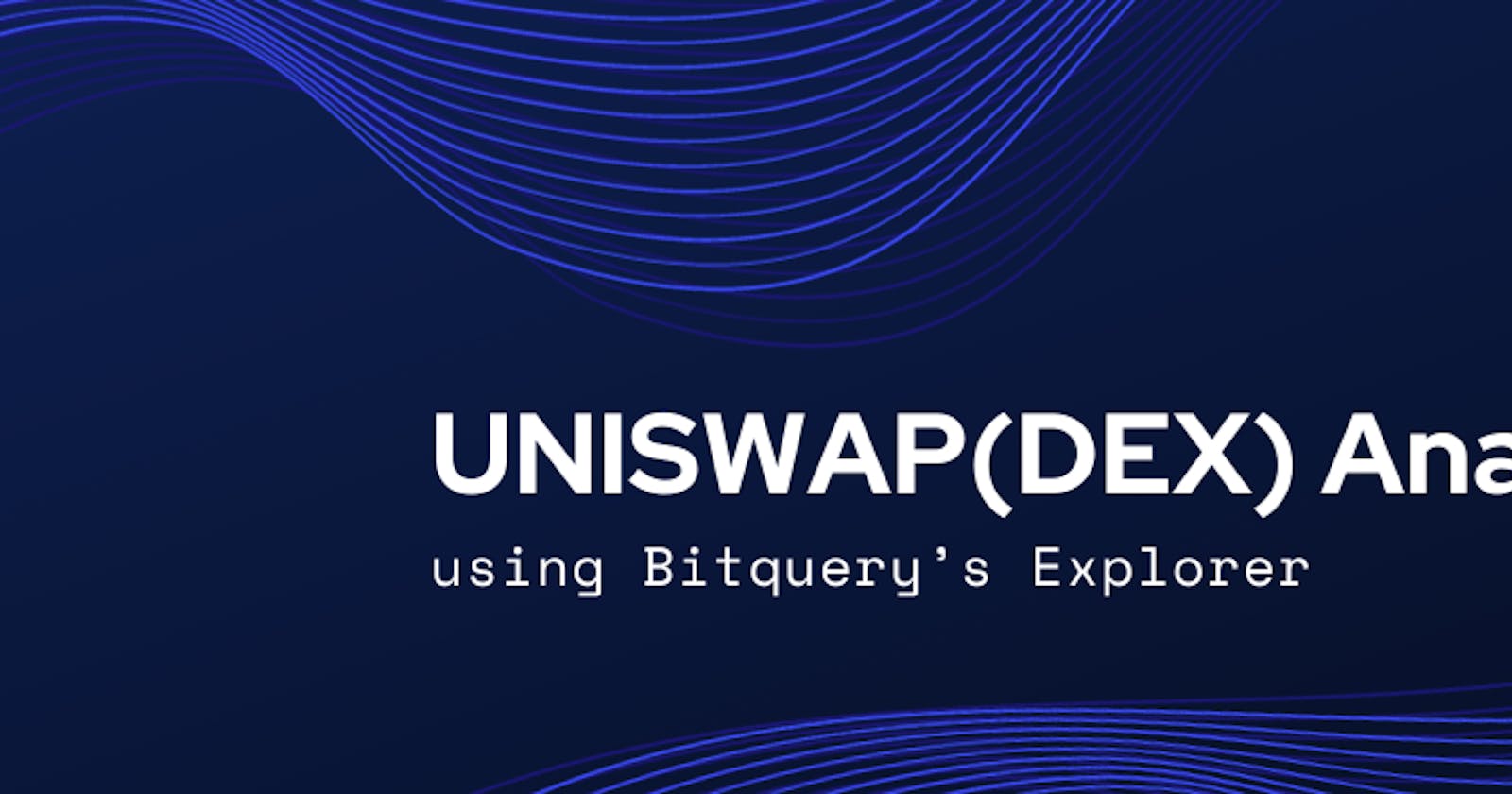Introduction
The Uniswap protocol is a peer-to-peer system for exchanging cryptocurrencies(ERC-2O Tokens) on the Ethereum blockchain.
The current model of Uniswap is the V3, its defining idea is concentrated liquidity- liquidity that is allocated within a custom price range.
In this article, we delve into a comprehensive analysis of Uniswap using Bitquery's Explorer and API tools.
Uniswap Overview
The Uniswap protocol is a suite of persistent, non-upgradable smart contracts that together create an Automated Market Maker(AMM), a protocol that facilitates peer-to-peer market making and swapping of ERC-20 tokens(cryptocurrencies) on the Ethereum blockchain.
Currently, Uniswap is the market leader among decentralized crypto exchanges, having had a 66.1% share of the total spot trading volume in 2023 Q2.
Bitquery's Explorer
Bitquery Explorer provides on-chain metrics, historical and real-time data across more than 40 blockchains through its widgets and GraphQL APIs.
Bitquery's APIs allows you to retrieve information about UNISWAP like the following:
Liquidity Pools
Trading Volumes and User Activity
Liquidity Pools
A liquidity pool is a smart contract where tokens are locked to provide liquidity. Liquidity, in the context of Uniswap , refers to the availability of tokens in liquidity pools that facilitate trades.
In the query example below, we will be fetching a list of liquidity pools created for WETH (Wrapped Ether) on UNISWAP, for which we need to set buy currency to the address of the WETH token.
Open this query in the GraphQL IDE.
Understanding the query
Let’s break down the query:
1. dexTrades: Specifies the type of data we want to retrieve, which is trade data on decentralized exchanges.
2. options: {limit: 10}: Sets the limit to retrieve the latest 10 trades.
3. exchangeName: {is: "Uniswap"}: Filters trades to include only those that occurred on the Uniswap exchange.
4. baseCurrency: {is: "0xC02aaA39b223FE8D0A0e5C4F27eAD9083C756Cc2"}: Specifies the base currency for which we want to retrieve trades, which is WETH with the provided Ethereum address.
Inside the dexTrades block, it retrieves the following information for each trade:
baseCurrency: The symbol and address of the base currency (WETH).
baseAmount: The amount of the base currency traded.
quoteCurrency: The symbol and address of the quote currency.
quoteAmount: The amount of the quote currency traded.
trades: The count of trades.
The result
The image below shows the result of the query above:
Trading Volumes and User Activity
Bitquery's API enables us to track trading volumes and user activity over time. This analysis sheds light on the popularity of Uniswap among users and the growth patterns of its decentralized ecosystem.
This query example displays the monthly trade volume of Uniswap V3.
Open this query in the GraphQL IDE.
Understanding the query
Additionally, the picture and the GRAPHQL query example below show the amount of UNISWAP trades by protocol
explorer.bitquery.io/ethereum/dex/Uniswap/v..
Open this query in the GraphQL IDE.
Conclusion
In conclusion, Bitquery's Explorer and API offer a robust toolkit for unraveling the complexities of Uniswap and similar projects in the DeFi space. This analysis not only provides valuable insights for investors and enthusiasts but also showcases the power of blockchain analytics in understanding decentralized ecosystems.
As we navigate the dynamic landscape of DeFi, Bitquery's tools stand as indispensable resources, empowering us to make informed decisions in this rapidly evolving space.
Resources
In this section, you'll find a curated collection of tools, references, and further reading to deepen your understanding and aid your exploration of Uniswap Analysis using Bitquery:
